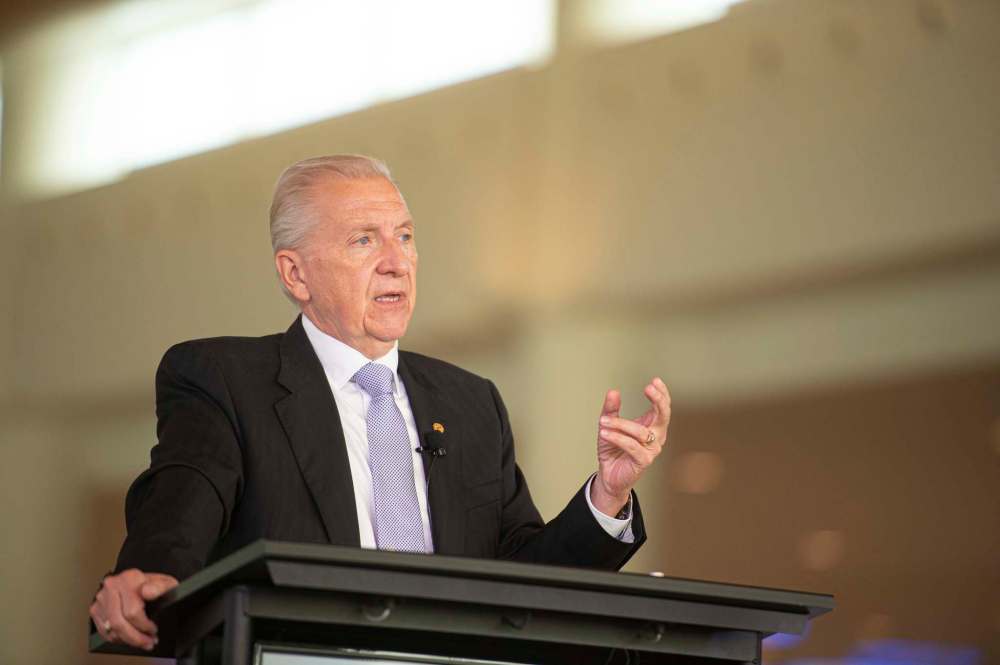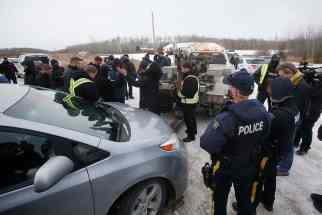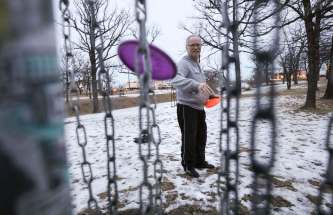Airport hits ‘bit of rough air’ WAA seeks breathing room from bondholders as revenues crash along with passenger traffic
Read this article for free:
or
Already have an account? Log in here »
To continue reading, please subscribe:
Monthly Digital Subscription
$0 for the first 4 weeks*
- Enjoy unlimited reading on winnipegfreepress.com
- Read the E-Edition, our digital replica newspaper
- Access News Break, our award-winning app
- Play interactive puzzles
*No charge for 4 weeks then price increases to the regular rate of $19.00 plus GST every four weeks. Offer available to new and qualified returning subscribers only. Cancel any time.
Monthly Digital Subscription
$4.75/week*
- Enjoy unlimited reading on winnipegfreepress.com
- Read the E-Edition, our digital replica newspaper
- Access News Break, our award-winning app
- Play interactive puzzles
*Billed as $19 plus GST every four weeks. Cancel any time.
To continue reading, please subscribe:
Add Free Press access to your Brandon Sun subscription for only an additional
$1 for the first 4 weeks*
*Your next subscription payment will increase by $1.00 and you will be charged $16.99 plus GST for four weeks. After four weeks, your payment will increase to $23.99 plus GST every four weeks.
Read unlimited articles for free today:
or
Already have an account? Log in here »
Hey there, time traveller!
This article was published 08/12/2020 (1832 days ago), so information in it may no longer be current.
The Winnipeg Airports Authority is seeking some breathing room from its bondholders as dramatically reduced passenger traffic has left the airport in breach of its bond covenants.
The WAA has a total of $580 million worth of outstanding bonds, some of them not due until 2047, most of which was taken on to build the new terminal building which opened in 2011.
The WAA is looking for relief from some of the conditions of its bonds until the end of 2022 through a so-called bondholder consent solicitation process.
The WAA is still able to make its debt payments because of access to about $125 million in a credit facility. But all four of its long term bond issues, all of which are covered by a master trust agreement, requires the WAA to bring in enough revenue each month to cover off monthly debt payments.
But with traffic down 97 per cent and much of its revenue derived from airport improvement fees paid by each travelling passenger, the WAA is off-side on that covenant.

When a borrower is in breach of a bond covenant, the bondholders have certain rights to act on their security including demanding certain remediation actions over the course of the ensuing year.
The WAA has already taken many steps to reduce costs, including shutting down parts of the terminal, shelving all but essential capital spending, laying off 27 per cent of its workforce and reducing the salaries for all management.
The WAA’s chief executive officer, Barry Rempel, said he has no doubt about the airport’s long-term viability, but it needs to seek relief in the short term.
“Do we have enough cash flow coming each month to pay our debt for that month? That is clearly not the case,” Rempel said. “But we have enough cash in cash reserves (and credit facilities) to continue paying and there is no concern there. In an abundance of caution we have gone out to talk to the bondholders.”
The other relief it is seeking is the ability to obtain additional debt.
Rempel is confident that bondholders are sympathetic to the airport’s situation.
In fact, the Greater Toronto Airports Authority and the Vancouver Airport Authority have both successfully gone through the same process with their bondholders and the Edmonton Regional Airports Authority launched a similar process with their bondholders last week.
Vancouver also subsequently raised an additional $600 million in debt.
“We are in better shape than most airports…Even the bond rating agencies referred to it as sustainable debt and we had a top credit rating to go with that pre-COVID.”
– Barry Rempel, CEO of Winnipeg Airport Authority
“We are in better shape than most airports,” Rempel said. “Even the bond rating agencies referred to it as sustainable debt and we had a top credit rating to go with that pre-COVID.”
In its April 14, 2020 report, Moody’s Investors Service long term rating on WAA’s debt was A1 with a stable outlook. But that was just a month after most traffic was shut down at the Winnipeg Richardson International Airport.
In its report on WAA debt, Moody’s said, “After the coronavirus outbreak is controlled, the timing and strength of a recovery in passenger traffic is uncertain given the current environment of international travel restrictions and deteriorating global and local economic outlook.”
But Rempel said that would be the case with just about every airport in the world, including Canadian airports. He said he does not believe the airport will return to “normal” until late 2024.
“We went in (to the pandemic) in really, really good shape,” Rempel said. “In terms of debt per enplaned passenger (a standard airport indebtedness rating) we are in the middle of the pack, globally.”
A bondholder meeting has been scheduled for Dec. 28 but they have the option of mailing in their proxies before that.
Both Vancouver and Toronto received approvals of their consent solicitation process before their respective scheduled meetings.
Rempel said he believes the bondholders understand the long-term benefits of the investment.
“This is a country-wide… global issue,” he said. “I do take some solace in knowing that there is nothing here that the board or management in Winnipeg has done wrong. We will get through this. It is not really a long term concern for me. We will be here serving our community for many years. We have a bit of a patch of rough air right now.”
martin.cash@freepress.mb.ca

Martin Cash has been writing a column and business news at the Free Press since 1989. Over those years he’s written through a number of business cycles and the rise and fall (and rise) in fortunes of many local businesses.
Our newsroom depends on a growing audience of readers to power our journalism. If you are not a paid reader, please consider becoming a subscriber.
Our newsroom depends on its audience of readers to power our journalism. Thank you for your support.
History
Updated on Tuesday, December 8, 2020 8:53 PM CST: Fixes typo in headline.







